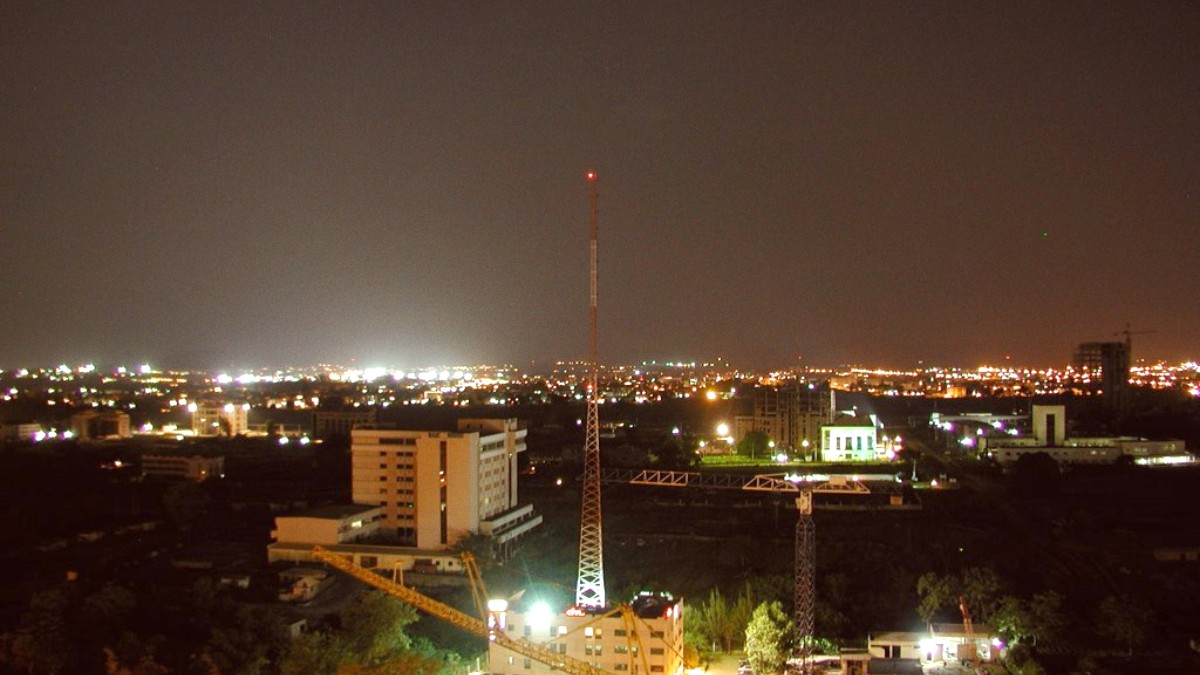
Nigeria
Abuja experiences a tropical wet and dry climate, featuring two distinct seasons. The dry season carries a different feel than the wet season, each with its own advantages and challenges.
The Harmattan wind, an unique atmospheric condition, occurs during the dry season, especially from December to February. This dry, dusty wind blows from the Sahara Desert, offering cooler nights and hazy conditions. While it can reduce visibility, it also imparts a welcome coolness after sunset. Daytime temperatures typically range from 30°C to 37°C (86°F to 99°F). Nights offer relief, dropping to 15°C to 20°C (59°F to 68°F), especially during the Harmattan. Humidity remains low, making the heat feel less oppressive.
Abuja does not experience monsoons or hurricanes. These weather phenomena are not typical for its geographical location. While extreme temperatures are rare, the dry season can present very hot days, notably in March, just before the rains arrive. Heavy rainfall during the wet season can sometimes lead to localized urban flooding and traffic congestion, especially in areas with less developed drainage systems. Travelers should prepare for sudden downpours during this period.
If outdoor exploration and comfortable weather are priorities, aim for the dry season. If you prefer fewer crowds and lush scenery, and do not mind the rain, the wet season presents good value.
December to February (Peak Dry)
Pleasant weather, lower humidity, clearer skies. Good for outdoor activities.
Higher accommodation and flight prices. Popular attractions may encounter more visitors. Harmattan haze can obscure distant views.
March, November (Transition)
Mix of conditions. Fewer tourists, potentially better rates. Lush landscapes in November.
Unpredictable weather. March can be hot. November might see late Harmattan effects.
April to October (Wet Season)
Fewer tourists, lower accommodation and flight prices. Opportunity for local life experience.
Heavy rainfall can disrupt plans. Localized urban flooding. High humidity and increased mosquito activity.
The dry season (November-March) is ideal for outdoor pursuits like hiking, park exploration, and sightseeing due to lower humidity, no rain, and clearer skies. This is the best time for visits to Millennium Park, Jabi Lake, or attempts at seeking permission to hike Aso Rock.
The timing of cultural events often aligns with the dry season or specific religious calendars. Always check local event listings closer to your travel dates for any specific festivals or performances you wish to attend.
Abuja is not a main wildlife viewing destination in Nigeria.
General wildlife viewing in Nigeria is often better in the dry season.
Animals gather around dwindling water sources then.
For Abuja specifically, the National Children's Park and Zoo offers limited viewing year-round.
Zoo access for viewing is available throughout the year.
All non-ECOWAS (Economic Community of West African States) citizens need a visa to enter Nigeria. Begin your visa application process well in advance of your planned travel dates. Processing times can vary widely.
Nigeria has several visa types. The most common for visitors include Tourist Visa, Business Visa, and Visa on Arrival (VoA) for specific categories. An e-Visa system is also available for some nationalities for online application.
Gather all necessary documents. This list includes your passport, photographs, and various proofs of your travel arrangements. All documents ensure a smooth entry process.
Prices can vary widely based on your travel style and choices.
For those seeking value and local immersion.
NGN 23,000 - 58,000 (US$15-38)
Accommodation: NGN 15,000-30,000, Meals: NGN 5,000-15,000, Transport: NGN 3,000-8,000.
Comfortable experiences with a mix of local and international options.
NGN 70,000 - 165,000 (US$45-112)
Accommodation: NGN 40,000-90,000, Meals: NGN 15,000-35,000, Transport: NGN 10,000-25,000.
Top-tier comfort, amenities, and exclusive experiences.
NGN 180,000 - 530,000+ (US$120-360+)
Accommodation: NGN 100,000-300,000+, Meals: NGN 40,000-100,000+, Transport: NGN 25,000-80,000+.
| Category | Price Range (NGN) | Notes |
|---|---|---|
| Street Food/Local Buka | 1,000 - 5,000 per meal | Authentic, great value. |
| Ride-hailing (Uber/Bolt) | 1,500 - 8,000 per trip | Distance, time, traffic dependent. |
| Private Car Hire (with driver) | 40,000 - 80,000 per day | Flexibility and comfort. |
This section covers important medical preparations, common health concerns, and practical safety advice.
Mandatory for travelers aged 9 months+. Carry International Certificate of Vaccination or Prophylaxis (ICVP).
Consult your doctor 6-8 weeks before your trip.
Take anti-malarial medication, use DEET repellent, wear Long sleeves, sleep under nets.
Prevention is to a healthy trip.
Diarrhea/Food and Waterborne Illnesses: Drink only commercially Bottled or filtered water. Ensure seals are intact. Avoid ice unless purified. Eat well-cooked food, served hot. Carry Hand sanitizer. A Portable water filter can be useful.
Heat-related Illnesses: Stay hydrated with bottled water. Wear light, breathable clothing. Seek shade during hottest parts of the day. Listen to your body and rest when needed.
Abuja is at a low altitude; altitude sickness is not a concern.
Abuja features private hospitals and clinics offering a reasonable standard of care. Payment is typically upfront.
General Emergency Number: Dial 112 (police, fire, ambulance). Private hospitals often offer quicker ambulance services.
Keep private hospital emergency numbers and travel insurance contacts readily available.
Nigeria carries a high crime rate. Abuja, while generally more secure than other major cities, is not exempt. Petty crime and opportunistic theft are common. More serious crimes occur less frequently in central Abuja.
Travel insurance is highly recommended for all visitors to Nigeria. A comprehensive policy assists with unexpected costs and grants peace of mind. Confirm policy details cover travel to Nigeria.
Medical emergencies, evacuation, trip cancellation, baggage loss, personal liability.
During wet season, heavy rains lead to localized urban flooding. Stay informed on forecasts.
Harmattan wind in dry season brings fine dust, causing haze and respiratory issues for some. Affects visibility.